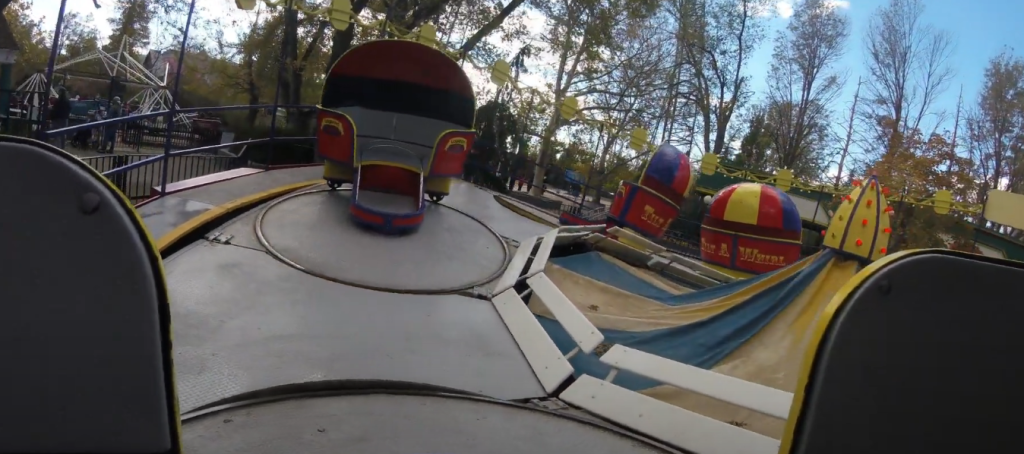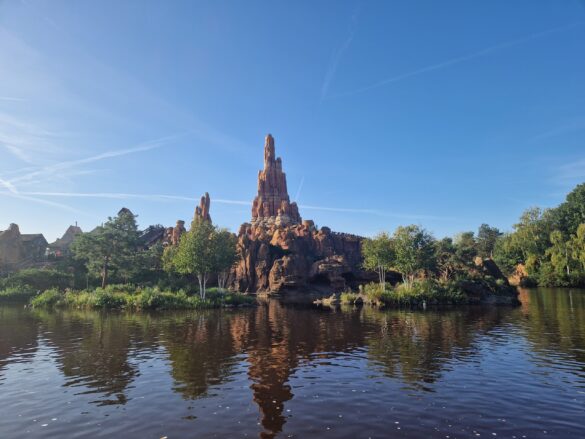
All About Flat Rides
Amusement rides can be categorized into different types. Everyone knows what a roller coaster is. Most people, especially those who have been to a Disney park, will know what a Dark Ride is. However, when ride enthusiasts start talking about flat rides, this particular term leaves people wondering what they mean.
In this article not only are you going to learn what the definition of a flat ride is, you will also learn about some of the most popular types of flat rides that are out in theme parks and on the carnival circuit.
The Definition of a Flat Ride
When amusement ride enthusiasts start talking about flat rides, they’re not talking about a cymbal on a drum set.
In a nut shell, flat rides are any type of ride that can’t be classified as a roller coaster, water ride or dark ride. They will generally have a set pattern and the cars will travel either parallel or along the ground. Another trait of the flat ride is that the part of the ride that moves will be attached to a stationary base in the middle of the ride.
Dumbo, at various Disney parks, is the example of a flat ride that everyone loves using.
What Was the First Flat Ride?
The very first flat ride was the carousel. Either baskets or carved animals were attached to ropes or chains and then they would spin in a circle around a center pole. The carousel that we see today at amusement parks, carnivals and fairs with platforms came about in the early 1800s.
Iconic Flat Rides That Still Exist Today
Now that we know that the carousel was the first flat ride, lets take a look at some of the other iconic flat rides that are still in operation today!
The Whip

In 1914 William F. Mangels developed a type of flat ride called The Whip. There was a long rectangular platform in the middle of the ride area with two turn tables at either end. Carts with wheels were attached to a cable that ran around the rectangle and turn tables.
When the carts reached the turn table, they’d be “whipped” to one side as the cart was brought around the end.
Today, over 100 years later, there are still Whip amusement rides in operation. The oldest belong to Dorney Park and Kennywood Park in the United States.
Tilt-a-Whirl
The Tilt-a-Whirl is an iconic ride that we’ve all encountered at one time or another. Either at an amusement park, a traveling carnival or the county fair.
Herbert Sellner conceived this ride in 1926. He made this version out of wood and powered it with petrol (i.e., gas) motors. Like the modern version, the cars held riders in carts attached to their own rotating platform, as shown in the image below.
The ride would then spin around a central pole while going up and down over it’s track. The centrifugal and gravitational force, along with the weight of the riders, would intensify or lessen the spin of the carts.

The Scrambler
This ride came several years after the Tilt-a-Whirl. It was created in 1938 by Richard Harris. This ride would spin around a center base with carriages connected to beams at the top of the pole. The carriages spin one way while the ride went the other way.
The Swing Ride
This particular ride was, more or less, one of the first carousels, as mentioned in the section about the first flat ride. Since amusement attractions started gaining popularity in the late 1800s, flat rides where riders where put in a basket like seat and then swung around a central point has existed.
Other Types of Flat Rides
Keep in mind, anything that can’t be classified as a water ride, roller coaster or dark ride is likely going to be a flat ride. With all of the different amusement and carnival attractions that are out there, flat rides really have a long list of what’s available. Here is a handful:
| Flat Ride Name | Debut Year |
| Enterprise | 1970 |
| Ferris Wheel | 1893 |
| Gravitron | 1983 |
| Matterhorn | 1888 |
| Miami Trip | 1988 |
| Moon Dance | 2005 |
| Roundup | 1954 |
| Swinging Ship | 1893 |
| Zipper | 1971 |
The list above isn’t all of the flat rides that are out there. We’re not even covering the old time car rides, tea cups, swinging pendulums, starflyers or top spin.
